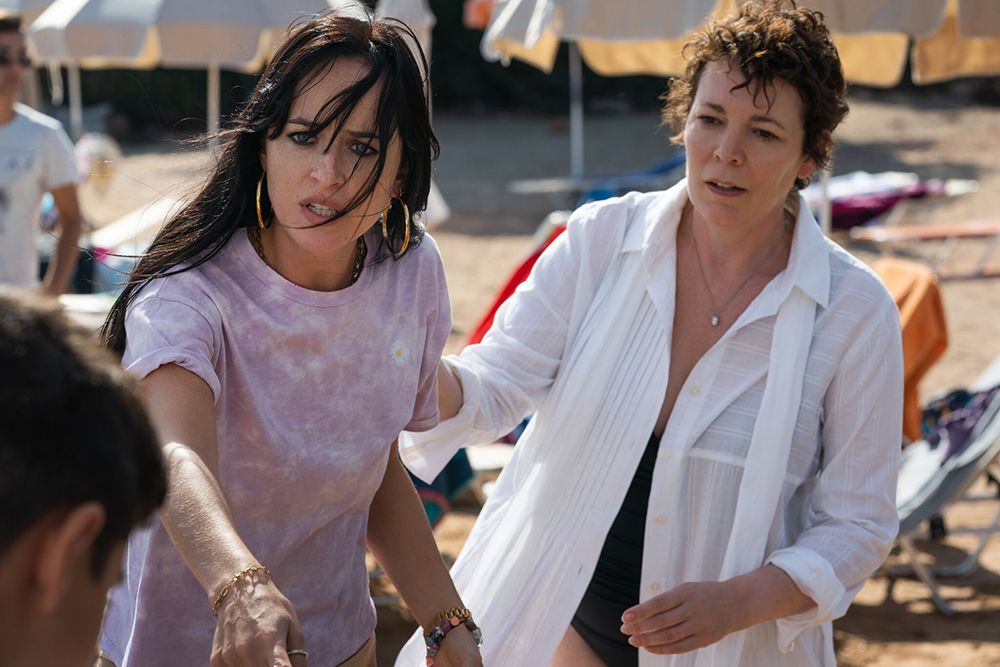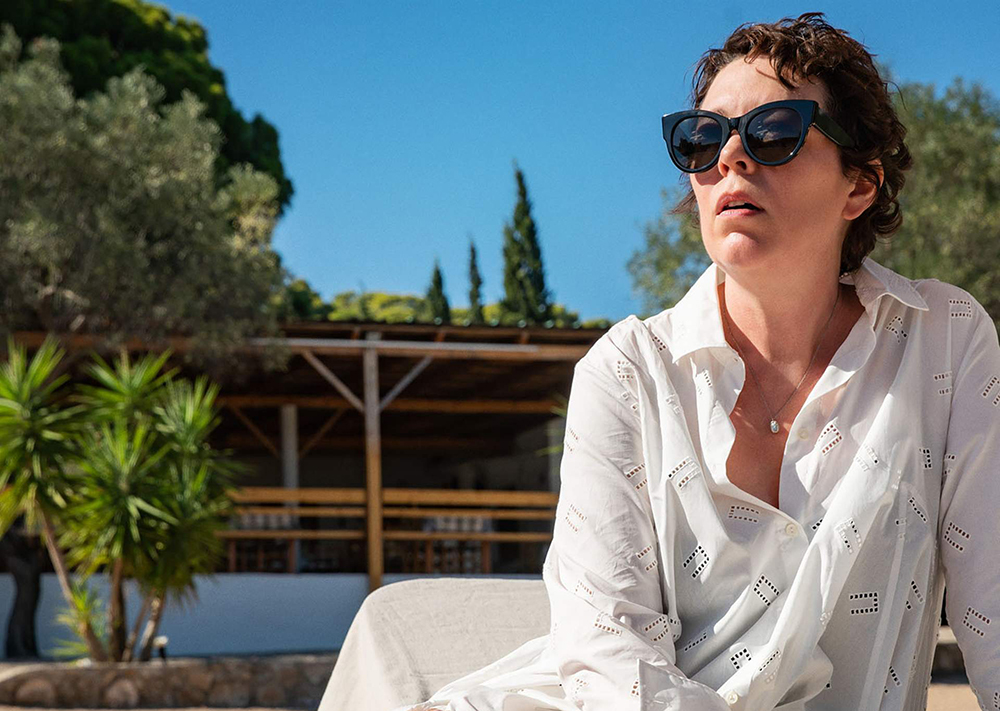Maggie Gyllenhaal makes her directorial debut as she brings Italian author Elena Ferrante’s novel to the big screen. “The Lost Daughter” features strong performances from its entire cast that includes Jessie Buckley, Dakota Johnson, Paul Mescal, Ed Harris, Peter Sarsgaard, and Oscar-winner Olivia Colman at its helm. Gyllenhaal also pens the film’s screenplay, which went on to win ‘Best Screenplay’ at the 2021 Venice Film Festival.
Leda (played by Olivia Colman in the present and Jessie Buckley in flashbacks) is a middle-aged divorcée. After her daughters left home for Canada, she decides to take a solo vacation in southern Greece. Leda’s relaxing holiday doesn’t last, however, as Leda encounters a large family whose presence is nothing but unsettling. But as Leda takes an interest in a mother (Dakota Johnson) and her young daughter, she is overwhelmed with emotion as she is taken back to memories of the unorthodox choices she made as a mother. As a result, Leda’s once soothing vacation becomes an intimate character study that details Leda’s experience with motherhood.
Olivia Coleman Wows in an Electric Performance
Colman gives an electrifying and layered turn in the lead role; every time she’s on screen it’s hard to peel your eyes away from the performance happening on-screen. Her portrayal fits hand in hand with BAFTA nominee Jessie Buckley’s brilliant performance as the younger version of Leda. Both actresses create a character that draws you in and keeps you enthralled by the character.
Gyllenhaal manages to explore the complexity of motherhood and how it evolves over time; she shows this in flashbacks with Leda and her children when they’re young, as well as adults. “The Lost Daughter” mixes both performance and directing (and maybe the world completely shutting down in 2020) to show the changes in Leda’s relationship with her children. Dakota Johnson’s somewhat eerie performance as Nina is just one of the film’s many factors that draws you in. The scenes that Johnson shares with Colman are some of the best in the film, whether it be the distaste they both share for parenthood or something else. Every scene with them is spellbinding.
‘The Lost Daughter’s’ Intimacy and Tension Grasp Your Attention
The intimacy and tension throughout “The Lost Daughter” creates an atmosphere that grasps your attention for the entire two hours and doesn’t let go until the credits roll. “Never Rarely Sometimes Always” cinematographer Hélène Louvart and “Locke” and “Winter’s Bone” composer Dickon Hinchliffe create a score and picture that captures the spirit of the characters while perfectly accompanying the film’s contemporary ambience. Maggie Gyllenhaal manages to paint viewers a picture of motherhood and maternal responsibility that will probably leave you with a disdain for parenthood by the end. But if anything, it’s what makes the film so complex; it’s an authentic portrayal of how suffocating parental responsibilities can be, and how not everyone’s fit to take them on.

A Terrific Triumph for Gyllenhaal’s Directorial Debut
Hélène Louvart provides the film with mesmerising cinematography that fully immerses you into Leda’s point of view without being suffocating. The film is also one of the more refreshing contenders for the 2022 awards season. The film isn’t a mundane biopic or overcrowded feature; it’s a gritty affair that explores tender themes across past and present, linked together by one woman and her resentment towards motherhood.
Overall, Maggie Gyllenhaal’s writer/director debut is an absolute triumph for the actress turned director. “The Lost Daughter” is an intense and meaty study of parenthood and how people deal with the responsibilities that come with a child. The film stirs you to core and leaves you with an open ending that can be interpreted however you want.
“The Lost Daughter” is currently available to stream on Netflix via subscription.
Support the Site: Consider becoming a sponsor to unlock exclusive, member-only content and help support The Movie Buff!


